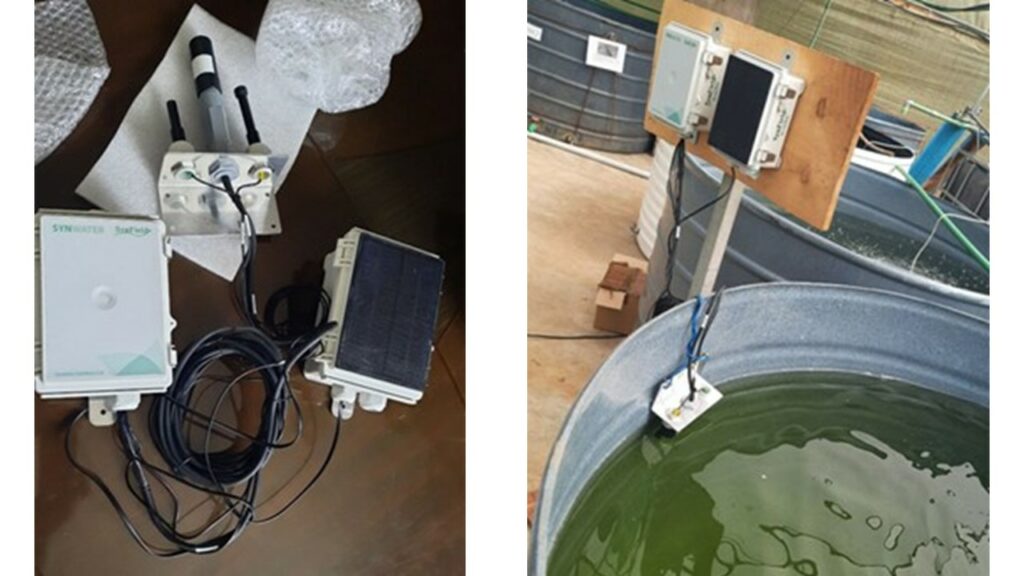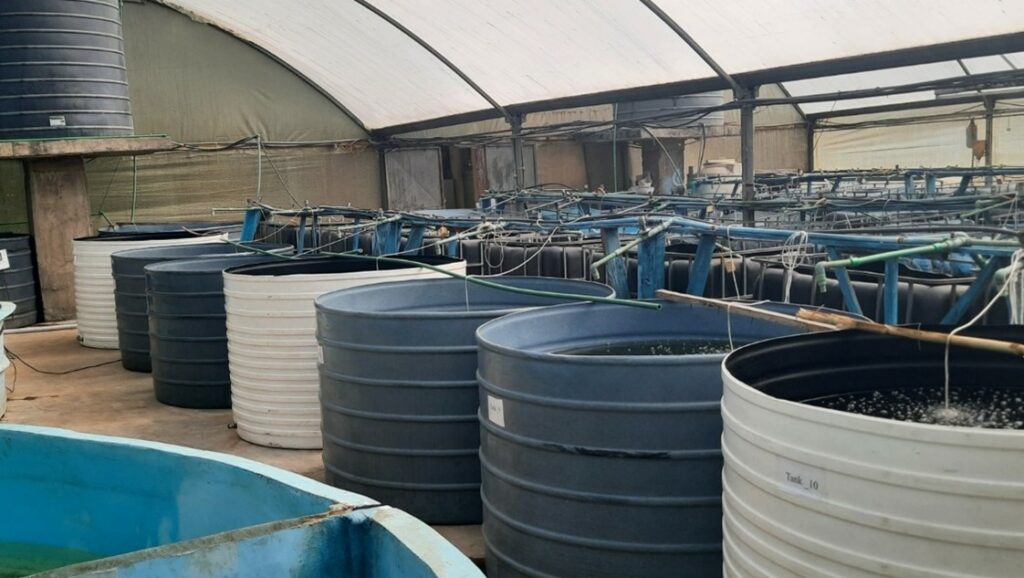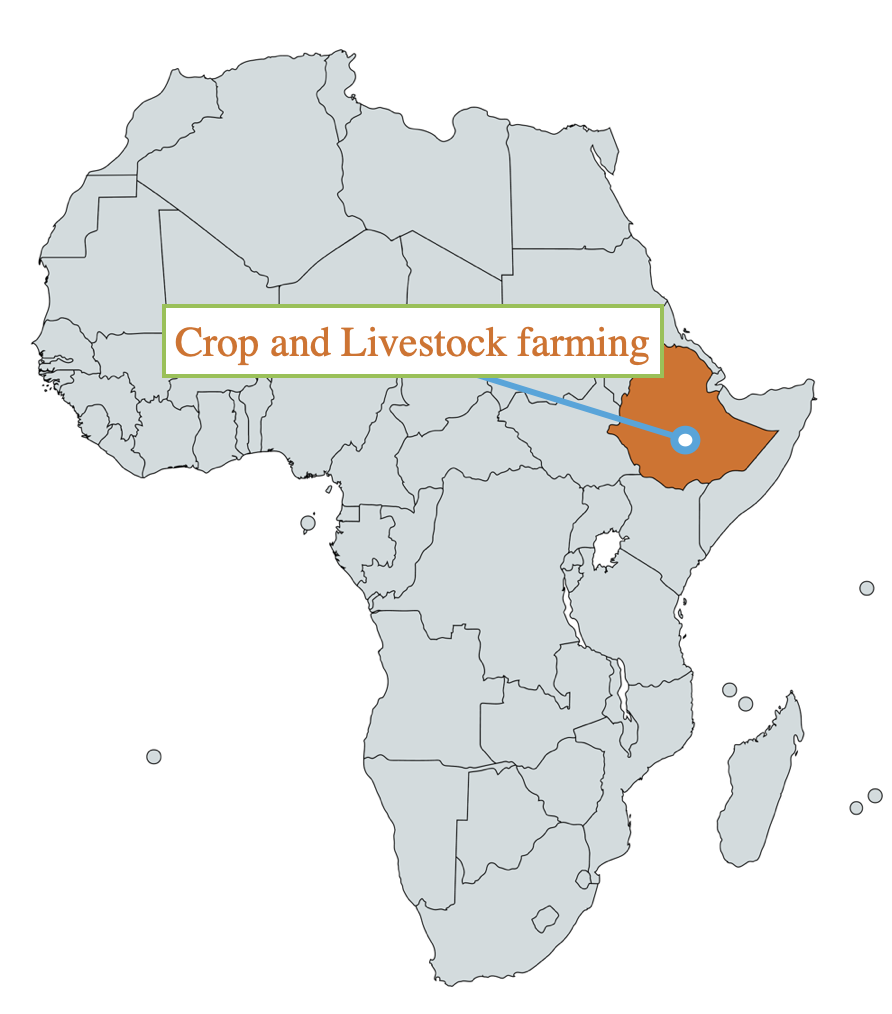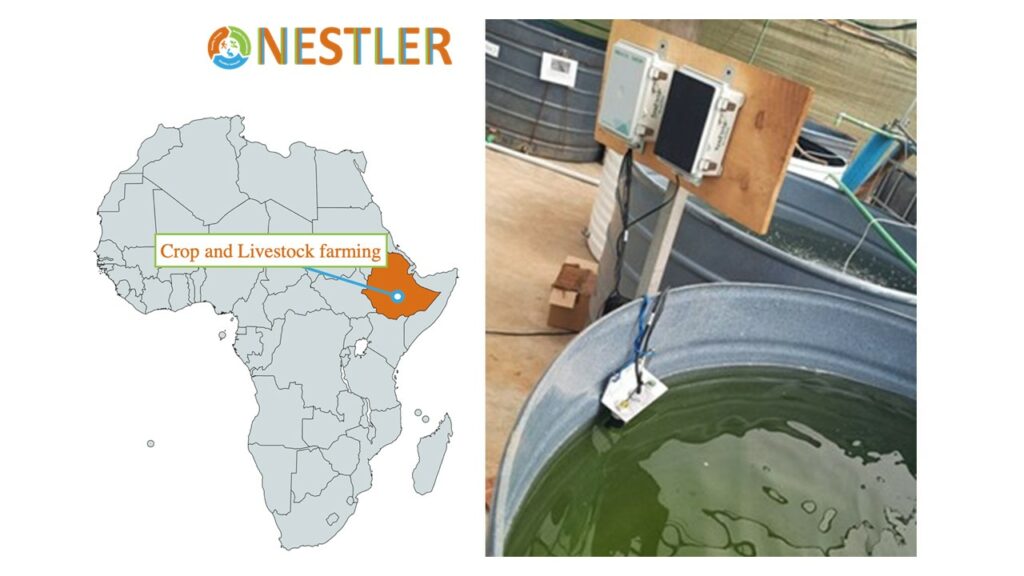The project’s outcomes will be demonstrated on pilot scenarios across six African member states (Cameroon, Uganda, Ethiopia, Rwanda, Kenya, Nigeria). The NESTLER pilot activities in Ethiopia will be led by EIAR (Federal Agricultural Research Institute of Ethiopia). EIAR will assess the impact of insect protein as a potential alternative to traditional farm feed in its two pilot initiatives, specifically P.ETH.1 and P.ETH.2, in collaboration with the MANA and ICIPE institutes.
The P.ETH.2 pilot is located in the National Fisheries and Aquatic Life Research Center (NFALRC), Sebeta. For research purposes and according to the experimental needs for environmental monitoring, SynField precision farming equipment was installed. The installation includes a SynField X3 head node and a SynWater node to monitor and record the water quality characteristics, such as water temperature, dissolved oxygen, and electric conductivity.
Monitoring the quality of water is essential for optimizing production practices and ensuring the well-being of aquatic organisms in aquaculture. A continuous assessment of key parameters enables proactively identification of potential environmental stressors, allowing for timely interventions to mitigate adverse impacts on productivity and animal health.








